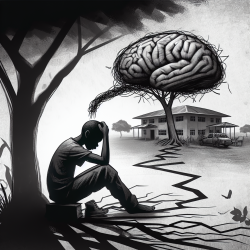Trauma-Informed Care (TIC) is a crucial approach for audiologists who want to improve their patient care by recognizing and responding to the impact of traumatic stress. The recent research article, Does Trauma-Informed Care Have a Place in Audiology? A Review and Practical Suggestions, provides valuable insights and practical suggestions for implementing TIC in audiology practices. Here's how you can enhance your skills and offer better care to your patients by adopting TIC principles.
Understanding Trauma and Its Impact
Trauma can stem from various adverse experiences, both in childhood and adulthood. For audiology patients, trauma can significantly impact their hearing and vestibular testing and treatment. Recognizing these effects is the first step towards providing trauma-informed care.
Childhood Trauma
Adverse Childhood Experiences (ACEs) such as abuse, neglect, and household dysfunction can lead to long-term health issues, including hearing and balance disorders. Children with chronic health conditions are particularly vulnerable to medical trauma, which can interfere with effective audiological care.
Adult Trauma
Adults, especially veterans and older adults, may experience trauma that affects their interaction with audiologists. Conditions like PTSD are often comorbid with hearing issues such as tinnitus, making trauma-informed care essential for accurate diagnosis and treatment.
Implementing Trauma-Informed Care in Audiology
To provide trauma-informed care, audiologists should focus on the following strategies:
- Building Trust: Establish a rapport with patients before discussing trauma. Use active listening and open-ended questions to make patients comfortable.
- Screening for Trauma: Incorporate screening tools like the Psychosocial Assessment Tool for children and the PHQ-9 for adults to detect trauma history.
- Modifying Testing Procedures: Adjust testing environments and procedures to minimize distress. For example, avoid using distressing words during speech testing and consider non-booth testing for claustrophobic patients.
- Providing Support: Refer patients to mental health professionals and other supportive resources as needed. Close follow-up is crucial for patients with a history of trauma.
Continuing Education and Training
Trauma-informed care requires ongoing education and training. Audiologists should seek out TIC training opportunities and advocate for audiology-specific resources. Engaging with TIC information through professional organizations and continuing education will enhance your ability to provide compassionate and effective care.
To read the original research paper, please follow this link: Does Trauma-Informed Care Have a Place in Audiology? A Review and Practical Suggestions.










